Joyce Carol Oates found herself under fire after starting a controversy on the social media platform X with a post on the Bible.
In her post, she called the Bible a work of fiction, which resulted in many X users brigade the post with comments underneath it. The sentiments of many popular comments expressed disapproval of Oates, although some users thanked Oates for her willingness to speak up.
Oates’ X Post
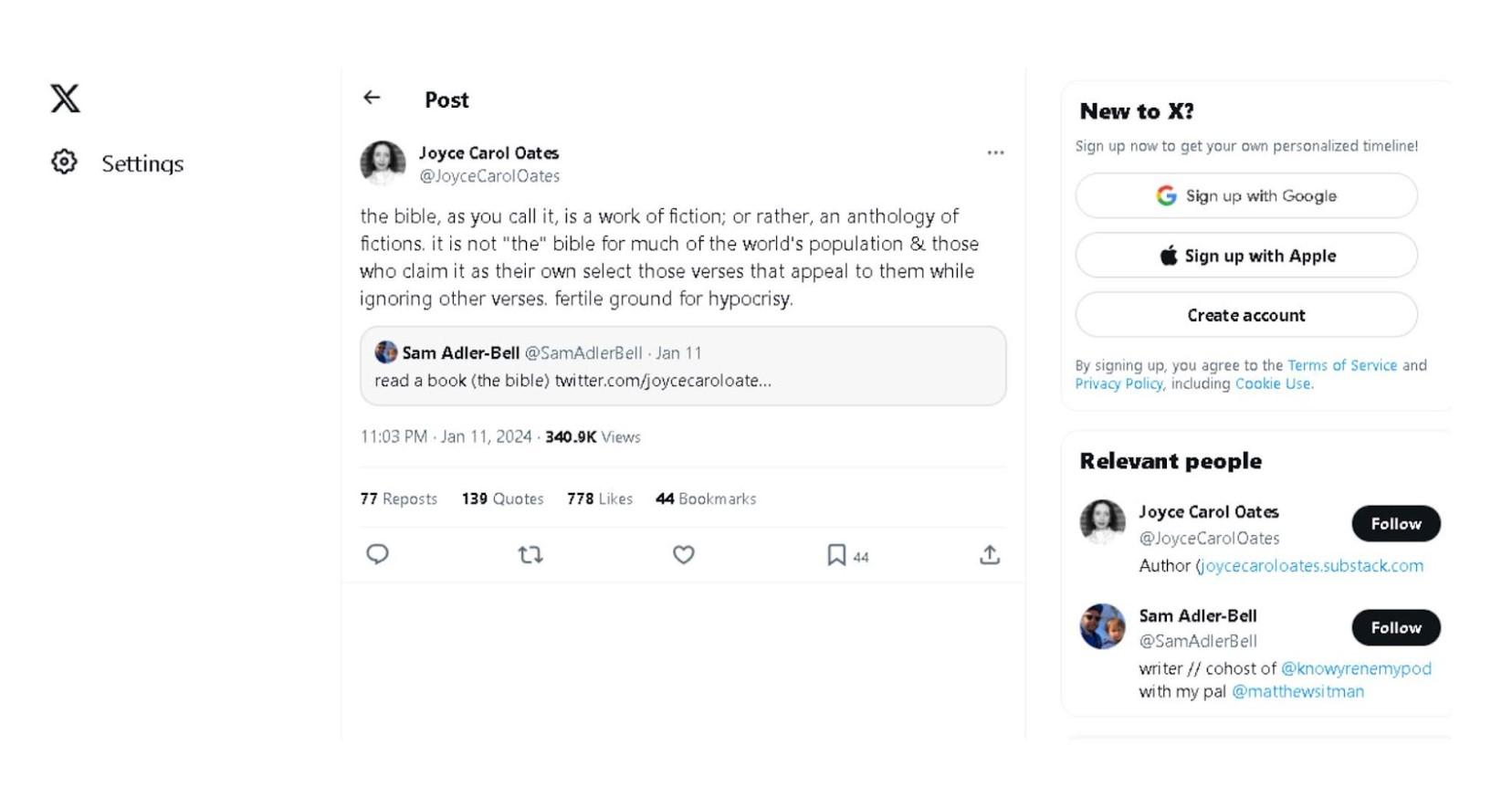
“The Bible, as you call it, is a work of fiction; or rather, an anthology of fictions.” Oates said in her X post. She asserts “it is not ‘the bible’ for much of the world’s population.”
Her post goes on to condemn those who respect the Bible, claiming they “select those verses that appeal to them while ignoring other verses.” She concludes the post by saying the Bible is a “fertile ground for hypocrisy.”
Who is Joyce Carol Oates?
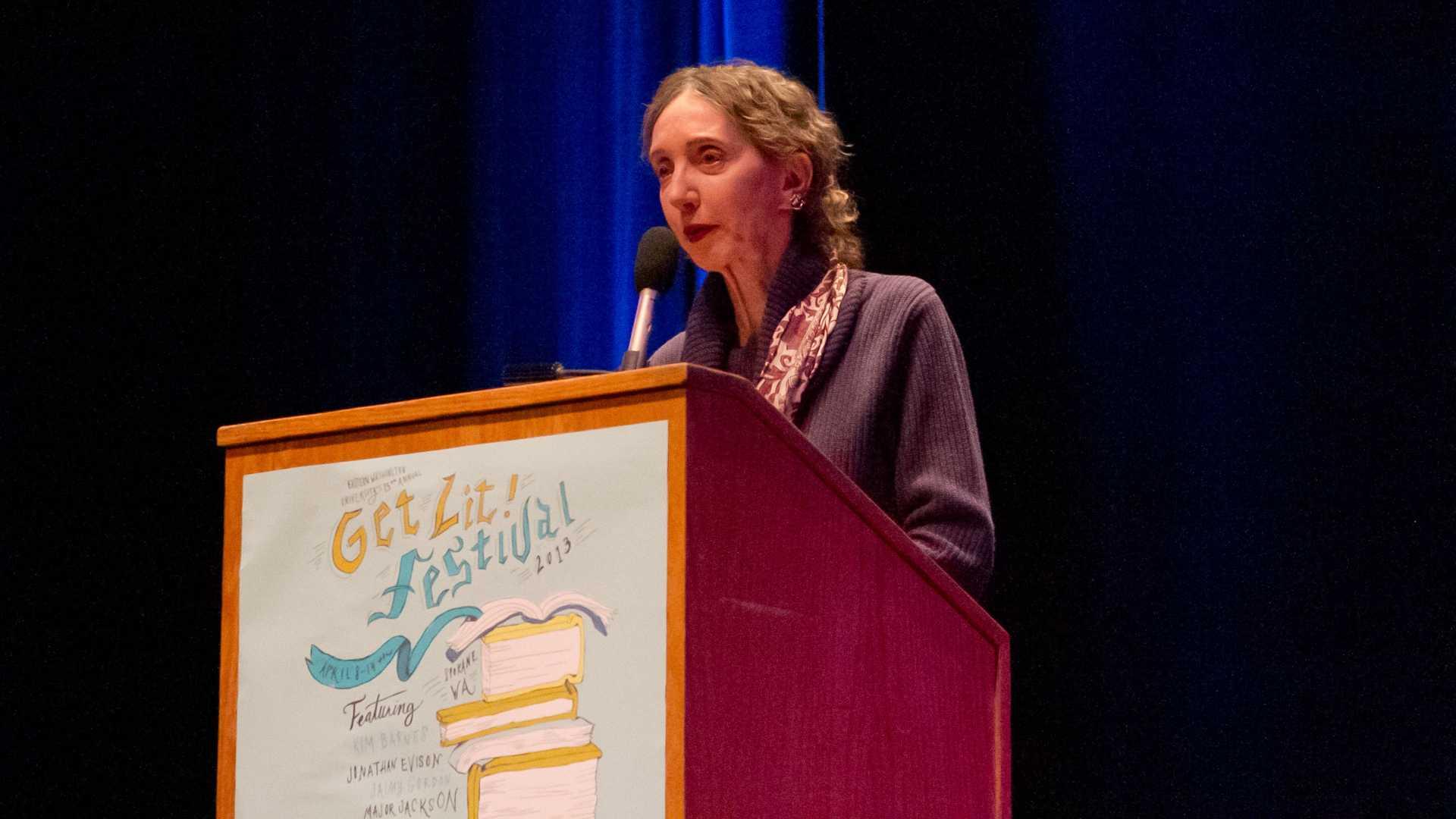
American Writer Joyce Carol Oates is a writer born in New York in 1938. She was raised as a Catholic but eventually came out as an atheist.
In her career as a writer, she has published 58 novels, many of which were finalists for the Pulitzer Prize. She has won the National Book Award and has received the National Humanities Medal. She also taught at Princeton University for several decades.
Context of the Oate’s Post
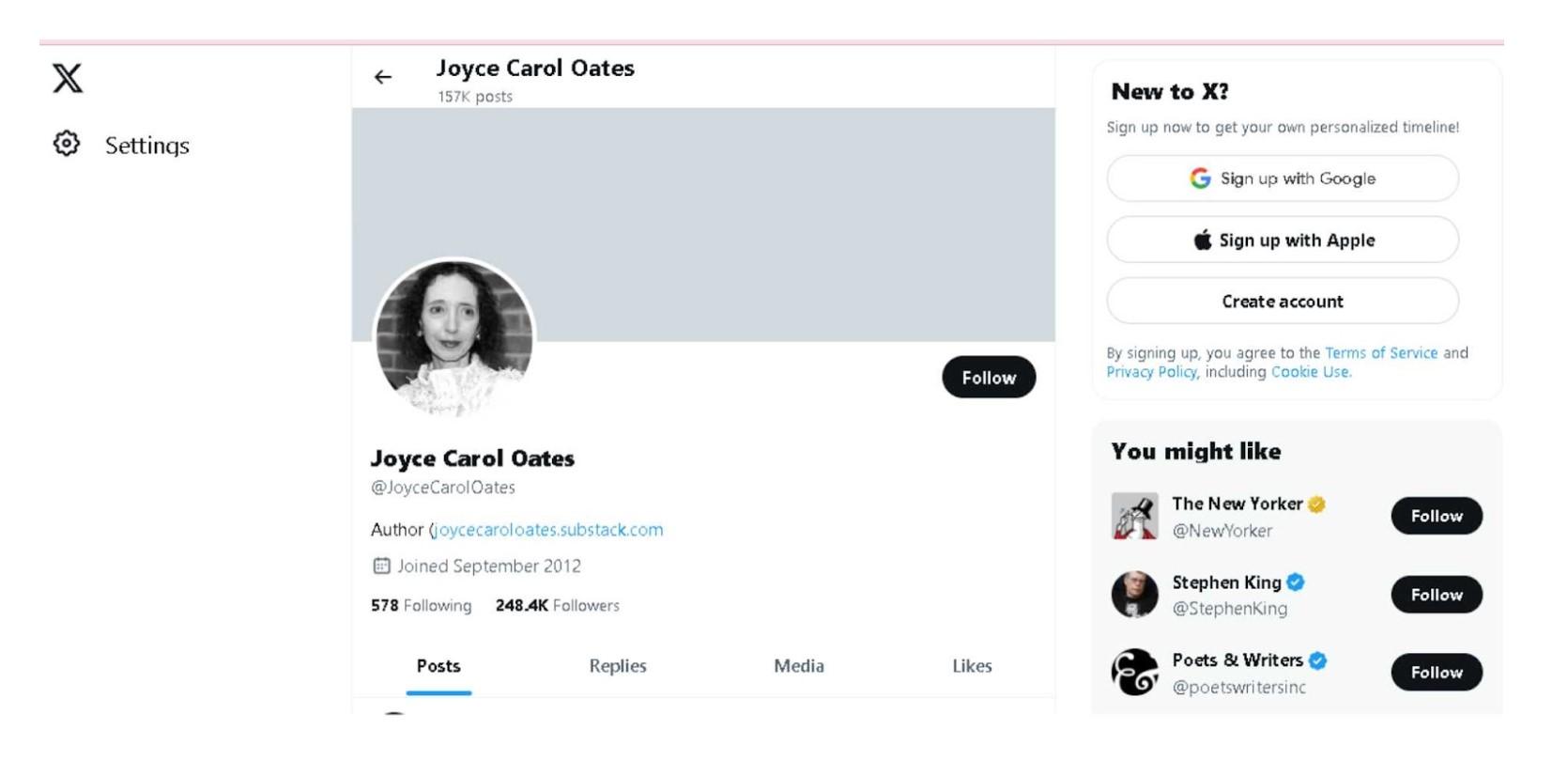
Oates made the post as a quote in a series of other posts. In these series of exchanges, she responded to podcasters Matt Sitman and Sam Adler-Bell. The argument heated up when Adler-Bell retorted to Oates, an author, to “read a book (the bible).”
This prompted the now infamous response by Oates, which, at the time of this writing, has been viewed over 340,000 times by users of X.
The Original Post

A post by Philip Lewis, deputy editor at the Huffington Post, was the genesis for the Oates, Sitman, and Sam Adler-Bell exchange. In his post, Lewis reported on a deceased Alabama prisoner who was found missing all his organs.
The man, Alexander Edwards, was found deceased in custody with his organs, even his brain, removed from his body. He was 74 years old and died on November 2, 2021.
Sitman’s Post
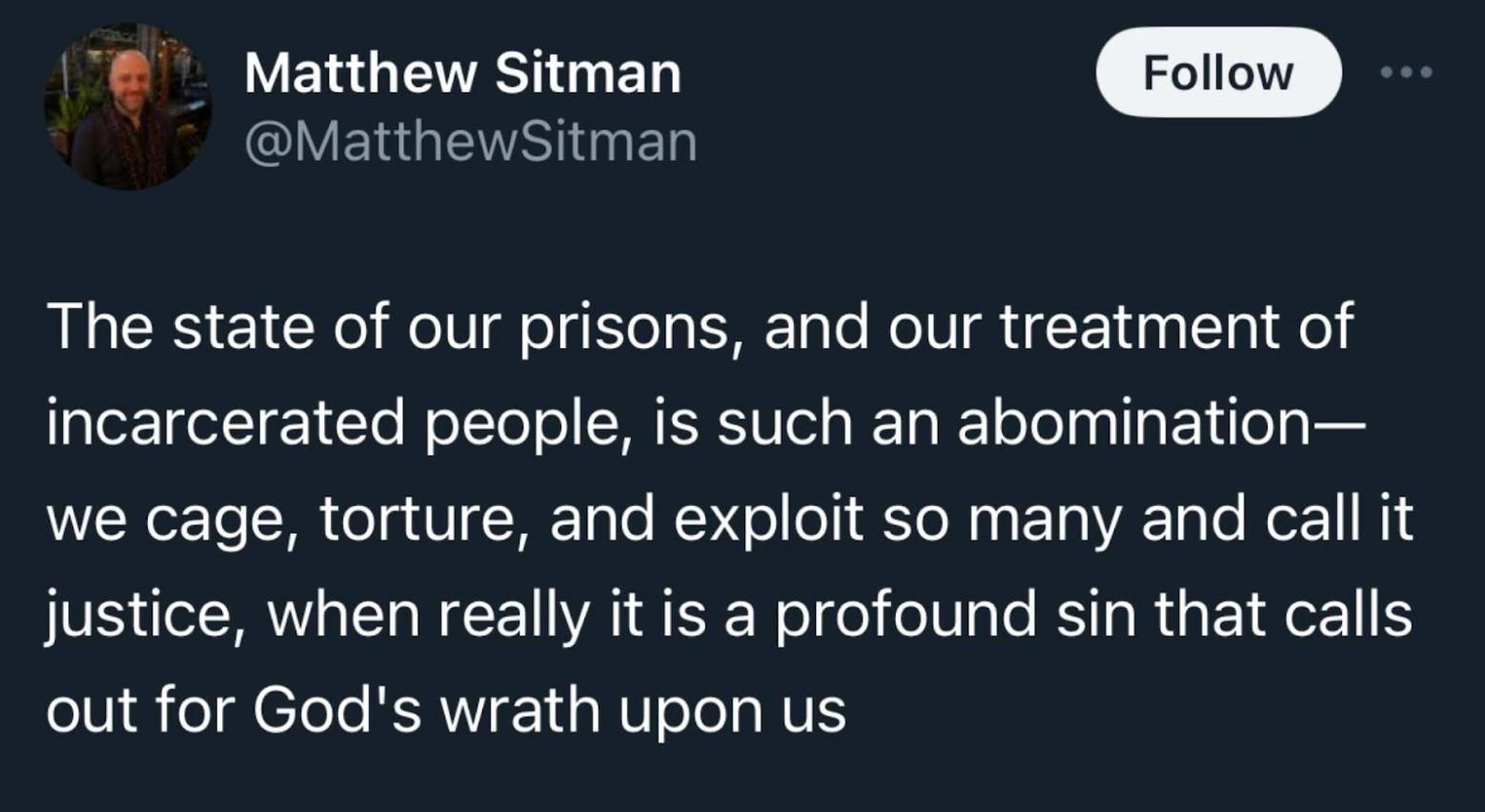
This post from Lewis prompted Sitman to decry the state of the American prison system. “The state of our prisons, and our treatment of incarcerated people, is such an abomination,” he wrote on X.
“We cage, torture, and exploit so many and call it justice, when really it is a profound sin that calls out for God’s wrath upon us,” his post concluded.
The Follow Up Post from Sitman

Sitman followed up on his own post with a quote post that shared a similar sentiment.
“Widows, orphans, prisoners—no Christian can, without doing great violence to Scripture, get around the extremely clear obligations we have to such people,” he wrote. All of Sitman’s posts were well received by users of X, having more likes than comments by a large margin.
Joyce Carol Oates’ First Post

It was at this point that Oates jumped into the fray, criticizing Sitman for lumping in groups she saw as disparate.
She questioned, “‘Widows, orphans, prisoners’–really, these entirely disparate categories have something in common,” This initial post in the thread from Oates was not well received by other users. At this point, Adler-Bell responded, which led to her response where she called the Bible a work of fiction.
Damin Toell’s Response to Oates

Attorney Damin Toell responded on X to Oate’s post with sarcasm. “What do you call it Joyce? Is there a secret name for The Bible that you use?”
Toell’s reply prompted a response from Oates herself. “The Hebrew Bible & The New Testament are two separate gatherings of writings by various persons over a considerable period of time. Those who want to believe that these are ‘divine’ books are welcome to their belief,” she responded.
Response By Eugene Havens
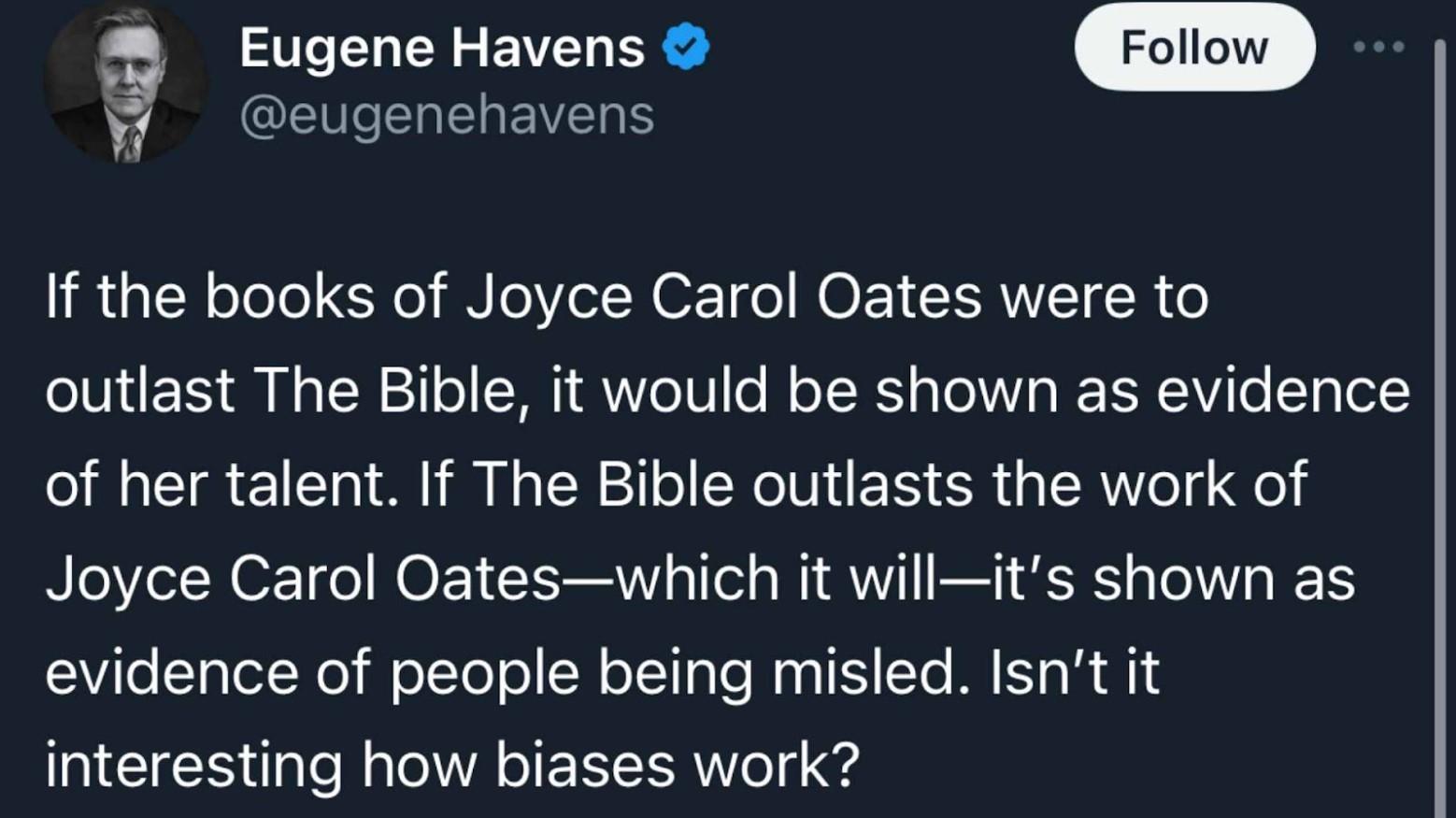
Another X user, Eugene Havens, roasted Oates for her post, making light of her role as an author.
“If the books of Joyce Carol Oates were to outlast The Bible, it would be shown as evidence of her talent. If the Bible outlasts the work of Joyce Carol Oates—which it will—it’s shown as evidence of people being misled. Isn’t it interesting how biases work,” he wrote.
AC Wimmer Tries to Help

Not every post was trying to start an argument. Catholic journalist AC Wimmer seemingly tried to help Oates in a comment.
He encouraged Oates “to read Ratzinger’s Intro to Christianity, anything by C.S. Lewis, Chesterton’s Orthodoxy” and invited her to discover the “joy, truth, and beauty” Christianity can bring. With the deluge of comments on her posts, it’s not clear if Oates saw this helpful tip.
Religious Bigotry
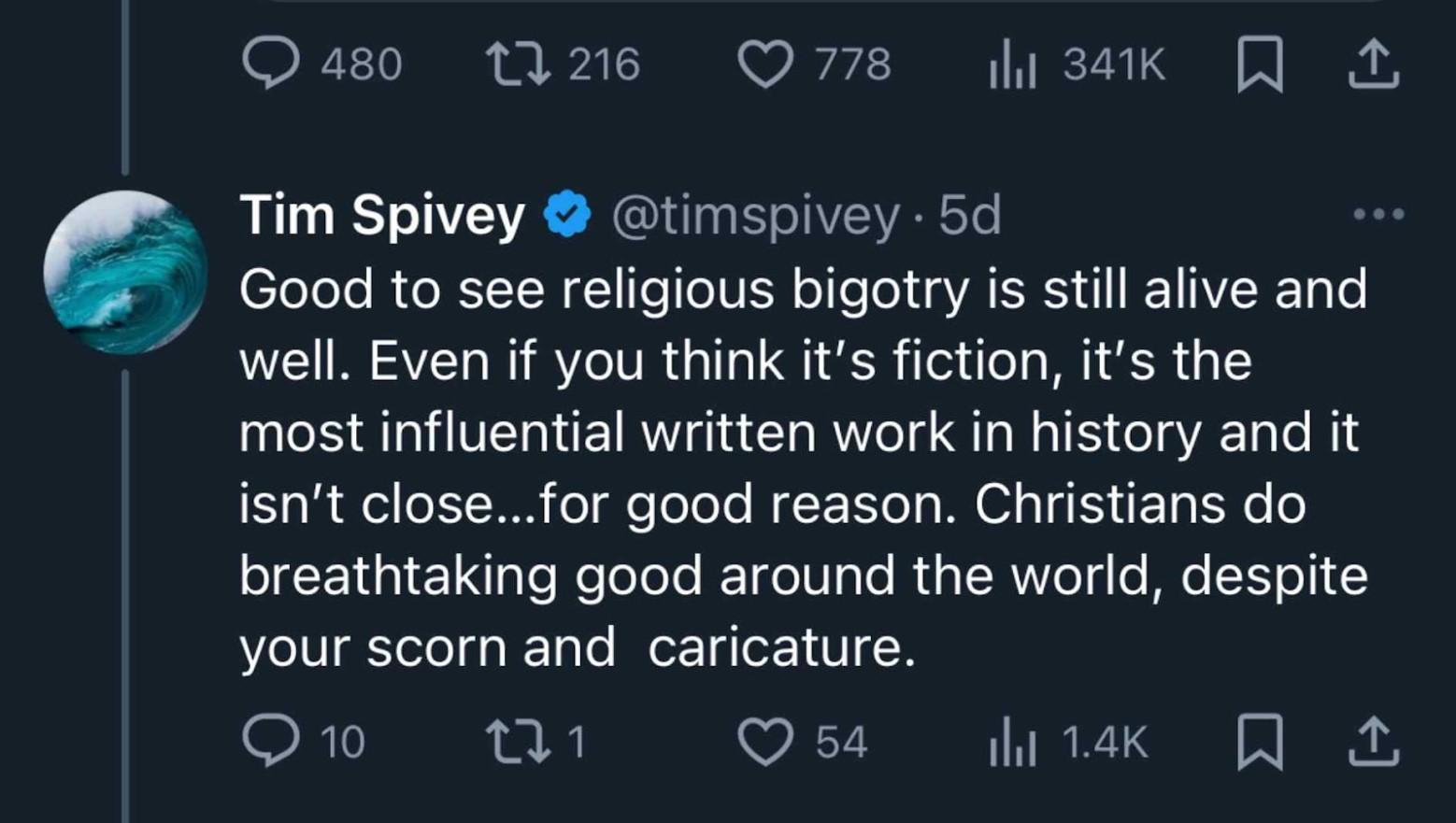
Verified X user Tim Spivey responded to Oates’ post by accusing her of “religious bigotry.” Stivey decried that “religious bigotry is still alive and well.”
“Even if you think it’s fiction, it’s the most influential written book in history and it isn’t close… for good reason,” Spivey wrote. His sentiment was shared by others in the thread who offered positive responses.
Cultural Context of Anti-Christian Sentiment

Fox News reported in 2023 that hostility against Christians and churches has been on the rise. Cultural observers noted that anti-Christian hostility has reached unprecedented levels in recent years.
The Center for Religious Liberty (FRC) released a report documenting an alarming increase in vandalism and acts of hostility against churches in recent years. The beginning of 2023 also saw a huge spike in church attacks.
Christians Dealing With Attacks Against Their Religion

Many Christians feel that attacks against their faith are increasingly tolerated in America. These Christians point to the mocking of their faith they endure regularly in media and television that doesn’t feel reciprocated against other faiths.
If someone criticized another religion they might find themselves out of a job, but when someone criticizes Christianity it is often just an acceptable norm is a sentiment shared by some Christians.
Evangelical Christians Feel They Face a Lot of Discrimination

A survey by the Public Religion Research Institute found that 57 percent of white evangelical Christians feel they face more discrimination in the United States than Muslims do.
Another 44 percent felt that their level of discrimination was at the same level as Muslims in the United States. Similar numbers were found for Catholic and other Protestant Christians. Many of these feelings stem from the changing American culture that is shifting away from Christian ideals.
America is Becoming Less Religious

Attacks like the one on Christianity by Oates seem increasingly common in today’s America. One reason for the increase in anti-religious sentiment is that America is simply becoming less religious.
In 2023, NPR reported that attendance at churches continues to plummet as religion is becoming an increasingly less important aspect of the American experience. The identity of an American is shifting away from the religious roots more present at the country’s inception.
Why Is America Becoming Less Religious?

A big reason that the number of religious adherents is dropping in America is that younger generations are adopting religious values at a lower rate. As the older population ages out, the pool of deeply religious people continues to shrink.
A secular culture divorced from religion has emerged for young people. This culture is focused on TV, social media, and shared experiences which have taken the purpose that religious institutions once provided to the nation’s youth.
Less Americans View Religion as Important Than Ever Before

According to a report by the Public Religion Research Institute (PRRI), more Americans than ever are not reporting that religion is the most important thing to them.
In their survey, only 16% of respondents said that religion is the most important thing in their lives. This number is down 20% from just the previous decade. Despite discouraging news, 82% of those surveyed said they are optimistic about their church.
Influence of the Pandemic

The COVID-19 pandemic had far-reaching consequences in America, including many religious institutions. As people were sequestered away from their church, it broke the habit of attending services regularly.
Numbers for church attendance have still not recovered to what they were in 2019. The PPRI survey found that before the pandemic in 2019, 19% of Americans regularly attended regular services. This number has dropped to 16% in post-pandemic times.
Christians Feel United States is Losing its Way

As religious metrics in the country continue to decline, many Christians feel that the United States is losing an important part of its identity.
Pew Research reported in 2022 that 45% of US adults and six out of ten Christians believe that America should be a “Christian nation.” However what that actually means varies greatly among respondents, with many saying they want their church to stay out of politics.
How do Americans View Christians?

A poll from YouGov in 2022 found that Americans have the most positive view toward Christianity compared to other religions.
Christianity scored a net favorability score of 34, with Protestantism being the most popular sect with a net 19 favorability score. The next widely favored religions are Amish, Judaism, Buddhism, and Catholicism. Each of these religions was seen favorably among Americans.
Atheists Have it Worse Than Christians

While some Christians have taken offense to Oates’ comments on X, atheists like her also aren’t viewed as favorably by many Americans.
In a Pew Research study from 2023, Jews, Mainline Protestants, Catholics, and Evangelic Christians all scored higher than Atheists on a favorability scale. Only Muslims and Mormons scored lower on favorability by those surveyed than Atheists. On this survey, Atheists had a net -4 favorability score.
Toxicity of Social Media

With these figures in mind, perhaps the small negative minority is being amplified on social media instead of there being a general negative sentiment shared by the majority of Americans against Christianity.
Social media has the tendency to spread more toxic posts that inflame and keep divisions between people stoked. If attention hadn’t been brought to Oakes’ comments, then many Christians would not have seen them.
Can People Overcome Social Media Toxicity?

Unfortunately, the reliance of people in the modern day to need instant access to the internet makes dealing with social media toxicity a constant pressure.
Many people need to stay connected to family, friends, and work with an electronic device always being near them. One of the best ways to overcome the toxic feelings that come from social media is to take a detox from it. However, even if someone cuts themselves off from everything, the conversation still continues.

